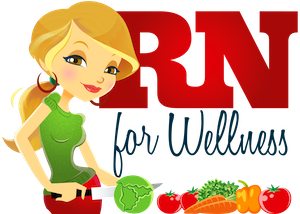Butter is one of the most highly concentrated forms of fluid milk. Twenty litres of whole milk are needed to produce one kilogram of butter. Butter is produced by agitating cream, which damages its membranes and allows the milk fats to conjoin, separating from the other parts of the cream. Butter can be derived from not only cow’s milk but any type of animal milk.
- 1 tbsp of Butter contains 100 calories, 7 grams of staturated fat (bad fat), and 30mg of cholesterol
Butter is a naturally occurring product that is minimally processed and requires little human intervention. There is no chemical exposure or additives to make butter. Due to the high concentration of saturated fats, butter should be consumed in moderation. It should bring an added touch to a dish and not be the main component. As with sugar you need to “own” your decision to eat it. The French are huge proponents of butter and are some of the thinnest and healthiest individuals in the moderized world. The French acknowledge butters calorie and consume it in moderation.
Butter Factoid: Butter only contains traces of lactose so it is ok to consume if you are diagnosed as lactose intolerant. However, if you have a true milk allergy you should avoid butter because it does contain enough allergy causing potential to cause a reaction.
Margarine:
Margarine is created by emulsifying a blend of purified vegetable oils with skimmed milk, chilling the mixture to solidify it and working it to improve the texture. Margarine producers start with cheap, poor quality vegetable oils, such as corn, cottonseed, soybeans, safflower seeds and canola to make margarine. The emulsifying step (liquid to solid) is also known as the hydrogenation step. This is where the term hydrogenated or partially hydrogenated oils or trans fats come from. Due to the negative connotation of trans fats some margarine makers are switching to palm or coconut oil which comes in a simi-solid form which does not require the hydrogenation step. Trans fats have been shown to increase the “bad” cholesterol (LDL) similarly to saturated fats, and they tend to lower the “healthy” (HDL) cholesterol when eaten in large amounts. What’s more – trans fats may make our blood platelets stickier. According to a recent study a Harvard Medical School eating margarine can increase heart disease in women by 53% as compared to those eating the same amount of butter.
- 1 tbsp of stick margarine contains 100 calories and packs a whopping 3 grams of trans fat, 2 grams saturated fat.
One of the components to margarine that we need to look at is that they contain omega-3 and omega-6 fatty acids which butter does not. Many know that omega-3 fatty acids have been determined through extensive research to have major health benefits. Omega-6 fatty acids have health benefits as well but not to the extent of omega-3. If you are going to chose one to get more of, omega-3’s are the best option. The problem when the omega-3 is combined with the omega-6 is that the omega-6 fatty acids decreases the health effects of the omega-3. The omega-6 to omega-3 ratio is typically 10:1 to 30:1 in margarine. The recommended ratio in the diet should be less than 4:1, although optimal ratio may be closer to 1:1. This is why knowing your food decisions is so important because without a closer look you may be fooled into thinking you are making a good choice.
So to recap, my opinions of butter vs margarine fit in line with my belief that we need to consume food that is as close to its natural state as possible. When processing requires humans to add or take away from an ingredient/food we complicate an item that the body recognizes and knows what to do with. When this act of complication occurs our body does not respond in its most efficient fashion often causing it to hold on to the unknown until the use of it is determined. So when living the real food clean eating lifestyle my opinion is that one should look to butter NOT margarine.








